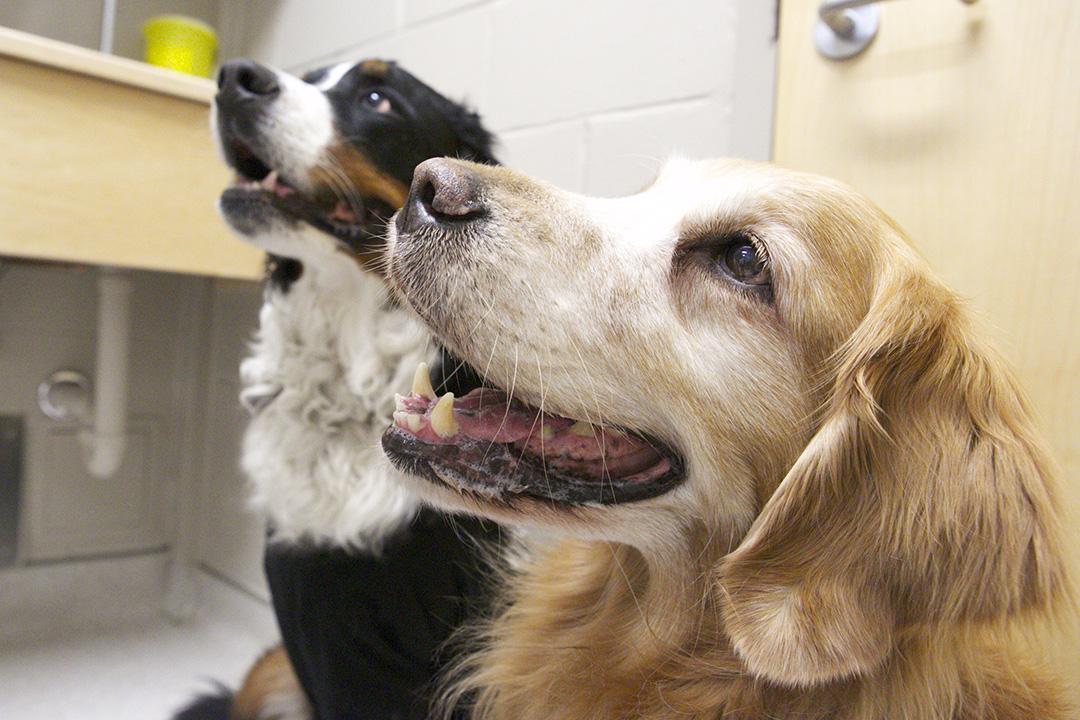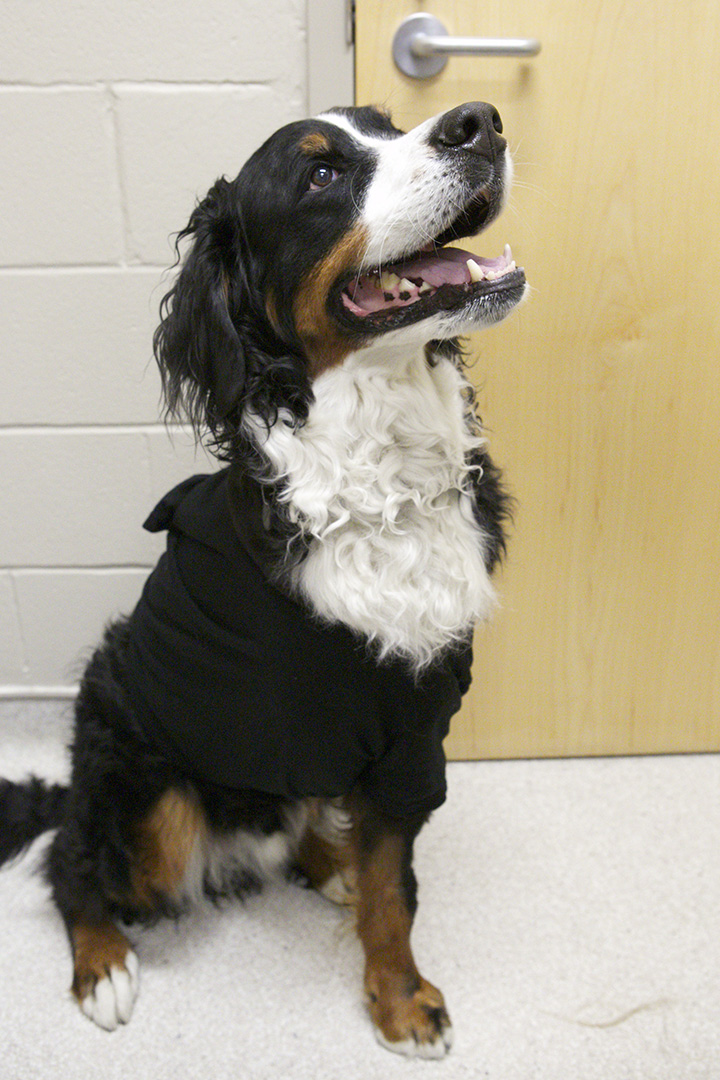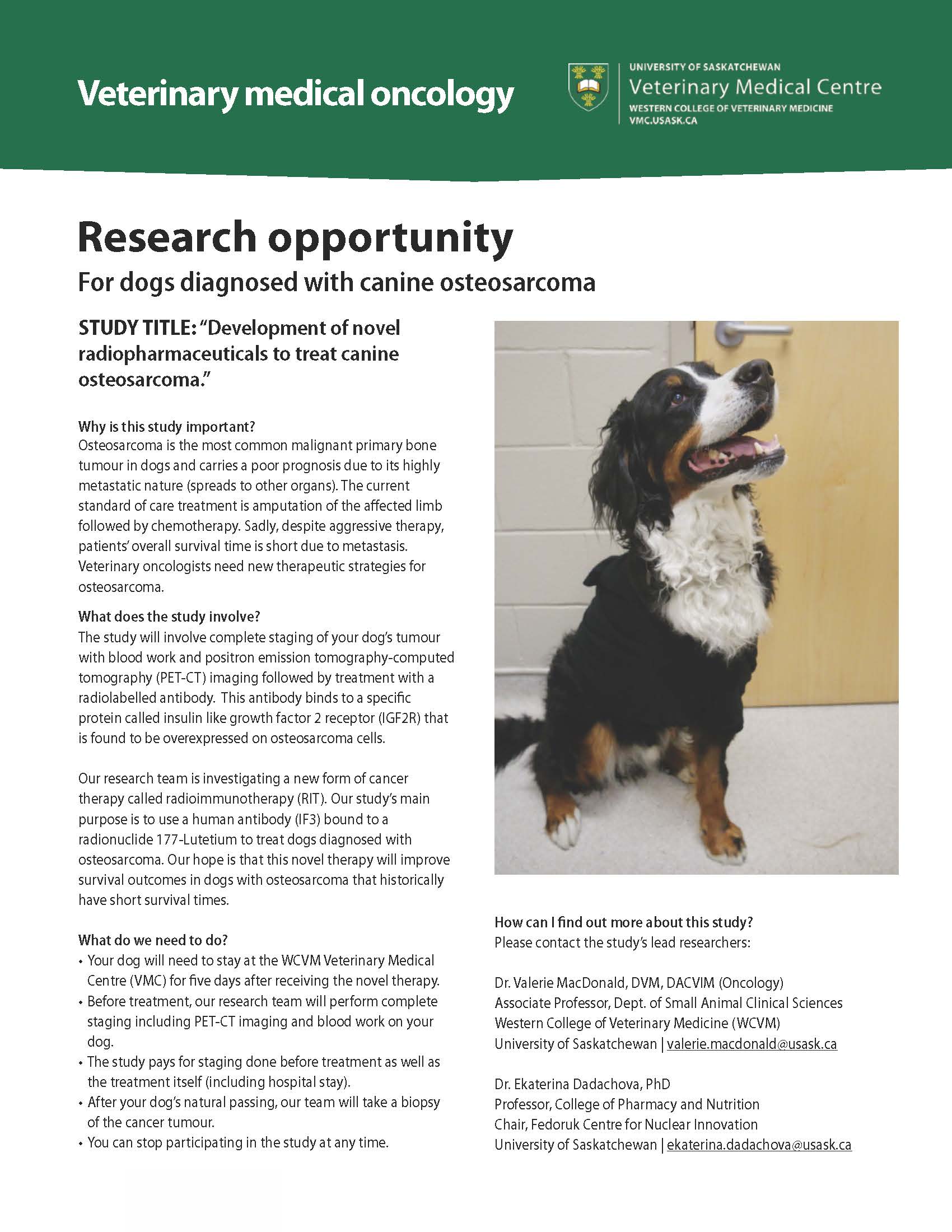
USask research team seeks dogs diagnosed with canine osteosarcoma
A team of University of Saskatchewan (USask) researchers at the Western College of Veterinary Medicine (WCVM) and the College of Pharmacy and Nutrition are searching for dogs diagnosed with osteosarcoma to be part of a new study.

Why is this study important?
Osteosarcoma is the most common malignant primary bone tumour in dogs and carries a poor prognosis due to its highly metastatic nature (spreads to other organs).
The current standard of care treatment is amputation of the affected limb followed by chemotherapy. Sadly, despite aggressive therapy, patients’ overall survival time is short due to metastasis. Veterinary oncologists need new therapeutic strategies for osteosarcoma.
What does the study involve?
The study will involve complete staging of your dog’s tumour with blood work and positron emission tomography-computed tomography (PET-CT) imaging followed by treatment with a radiolabelled antibody. This antibody binds to a specific protein called insulin like growth factor 2 receptor (IGF2R) that is found to be overexpressed on osteosarcoma cells.
Our research team is investigating a new form of cancer therapy called radioimmunotherapy (RIT). Our study’s main purpose is to use a human antibody (IF3) bound to a radionuclide 177-Lutetium to treat dogs diagnosed with osteosarcoma.
Our hope is that this novel therapy will improve survival outcomes in dogs with osteosarcoma that historically have short survival times.
What do we need to do?
- Your dog will need to stay at the WCVM Veterinary Medical Centre (VMC) for five days after receiving the novel therapy.
- Before treatment, our research team will perform complete staging including PET-CT imaging and blood work on your dog.
- The study pays for staging done before treatment as well as the treatment itself (including hospital stay).
- After your dog’s natural passing, our team will take a biopsy of the cancer tumour.
- You can stop participating in the study at any time.
How can I find out more about this study?
Please contact the study’s lead researchers:
Dr. Valerie MacDonald, DVM, DACVIM (Oncology)
Associate Professor, Dept. of Small Animal Clinical Sciences
Western College of Veterinary Medicine (WCVM)
University of Saskatchewan | valerie.macdonald@usask.ca
Dr. Ekaterina Dadachova, PhD
Professor, College of Pharmacy and Nutrition
Chair, Fedoruk Centre for Nuclear Innovation
University of Saskatchewan | ekaterina.dadachova@usask.ca


